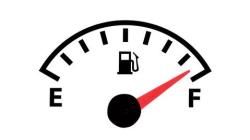When people talk about hydration, most of the time it's about what and how much athletes should drink during exercise.
These are clearly important questions, but your performance is also massively influenced by how hydrated you are when you start exercising in the first place. Drinking a strong electrolyte drink to optimise your hydration status before long, hot or really hard training sessions and events can significantly improve your performance.
We call this "preloading" and the practice has been widely studied in the last 20 years or so, both with astronauts and athletes. Whilst there's not a completely bulletproof consensus on the subject - there rarely is - there's strong evidence that taking in additional sodium with fluids before you start sweating is effective in promoting increased acute fluid retention and in improving endurance performance, especially in the heat.
Once you begin sweating you're generally going to be fighting a losing battle against fluid and electrolyte loss, so starting off properly hydrated can be extremely beneficial. When you're properly hydrated you have a larger reservoir of fluid to draw from over time than if you're dehydrated.
Starting well hydrated has other benefits too. Optimal hydration maximises your blood volume and this helps general cardiovascular function and your ability to dissipate the heat produced by your working muscles. This reduces fatigue and enables you to maintain your performance for longer.
Although athletes turning up to training a bit low on fluids is relatively common, it's generally less of an issue before events. That’s not to say that turning up to an event dehydrated never happens, I'm sure it does.
But, because most athletes care a lot about their performance in big events, there's a tendency to increase fluid intake before the big day because extra priority is placed on all aspects of last minute preparation.
The irony of this extra emphasis on pre-event hydration is that quite a lot of athletes can go from slightly under-drinking before training to significantly over-drinking pre-competition and this can lead to a different set of problems! (Like hyponatremia, which we’ve talked about in the past).
Without the right amount of sodium in your pre-exercise drinks, drinking lots of water will do you a fat lot of good. Typical sports drinks - which generally contain ~200 to 500mg of sodium per litre - simply don’t cut it when it comes to preloading as they're just way too dilute to make a meaningful difference to blood volume. The reality is it’s not vastly different from drinking water.
We use Precision Hydration’s 1,500mg per 32oz drink for preloading with our athletes and these are available in the all-natural drink mix format as well as zero-calorie effervescent tablets.
PH 1500 is very effective at increasing your plasma volume as it contains 3x more sodium than a typical sports drink. That extra sodium helps to pull water into your bloodstream and keep it there. This may allow you to get away with drinking considerably less in shorter/harder events where previously they would have had to try to consume more on the move (not easy when you’re flat out!). It can also help reduce the amount of times you need to pee before you start.
If you want to give this a try in some longer training sessions or B races, here’s what to do...
- Drink 1 x PH 1500 with 16oz of water the evening before a race.
- Drink 1 x PH 1500 with 16oz of water about 90 minutes before you start a race or long/hot/tough training session. Finish your drink at least 45 minutes before you start to give your body time to fully absorb what it needs and pee out any excess.
- Drink the PH 1500 in water you’d have drank anyway to ensure you don’t overdo it.
Want advice on how to stay hydrated once you’ve actually started sweating? Book in for our new Sweat Test service. We’ll tell you exactly how much sodium you lose in your sweat (which varies significantly from person to person and is largely genetically determined) and this allows us to fully personalize your hydration strategy for whatever you’re training for.

